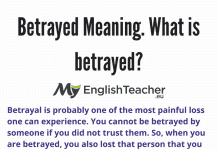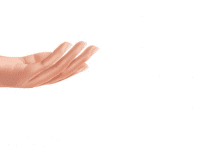Historically, fire is one of the most powerful tools that man has ever known. Before ancient people were able to domesticate fire, they had a hard time doing the most basic things – including cooking food and keeping warm during cold weather.
Now, we routinely use fire in our homes and on campouts, getting just inches away from a flame!
With that great power, of course, comes great responsibility. While fire is very powerful, it can sometimes be very harmful. When it is out of control, it can burn down entire forests, houses, and even neighborhoods.
While most people think of the flames that help us cook food, fire can also refer to gunfire. If someone shoots a gun, you can say they “fire a gun”.
Another meaning of “fire” is to tell someone that they no longer have a job with you. If you ask them to leave your company, you have fired them from their job.
The following collocations show the various uses of “fire” in English phrases.
Adjective + Fire (meaning flames)
1. Forest fire
If there is a fire in a forest, those are known as forest fires. They typically refer to fires that are large and can cover a huge area, such as the Yellowstone National Park fires of 1988.
They often happen because of buildup of old, dead leaves and animals on the forest floor. This provides fuel for the fires, and if the weather is dry and hot, a strike of lightning can lead to a large forest fire.
- The forest fire led to hundreds of people being displaced from their homes near the edge of the forest.
- When there is a large forest fire, they have to ask the national fire control to prevent the fire from growing larger, which is a difficult task.
2. Destructive fire
A destructive fire is one that destroys many things. It usually happens where people or animals live, so the fire destroys their homes or habitats.
- Millions of frogs and birds no longer had homes after the large, destructive fire.
- The huge lightning storm was scary, but the real damage was caused by the destructive fires that they produced when they lit several houses and dead trees on fire.
3. Disastrous fire
A disastrous fire is a complete disaster. This is usually because many things are destroyed and people or animals could be hurt.
- The disastrous fire left thousands of people homeless, and the city did not have the infrastructure to deal with the massive problem.
- The disastrous fire of Yellowstone National Park actually had some benefits the local wildlife, which began to thrive again shortly after the scorch.
4. Fierce fire
A fierce fire is one that is combative. It often results in various types of damage to property and life. It can also be very difficult to control, which present an additional problem.
- The fierce fire spread to three different apartment buildings before the fire fighters could stop it.
- Liam tried to make his circus act more exciting by introducing a fierce fire routine, but got rid of it when he noticed it would be too dangerous.
5. Crackling fire
Crackling usually refers to a campfire, or a fire that campers set at night when they are sitting around the woods next to their tents.
It gets the name from the sounds it makes; every so often a spark may fly out and “crackle”. This is a distinctive sound that can be paired with camping experiences.
- The girl scout troop sat around the crackling fire, singing campout songs.
- Toby lit the crackling fire and handed out sticks for everyone roast marshmallows with.
6. Roaring fire
A roaring fire is a huge fire, usually one that towers over people. The roaring adjective refers to the loud sound that such a fire makes. It often sounds like very fast wind that rushes past your ears.
- The sound of the roaring fire woke Jake up.
- It was difficult to hear the conversation over the noise of the roaring fire.
Skype English Lesson with a native AMERICAN or BRITISH teacher ››
7. Blazing fire
A blazing fire is one that is large with flames flying around the air. It is often loud and moves fast as well.
- The blazing fire left little time for the hikers to get rescued; luckily a very trained and experienced team was able to get to them in time.
- Danny’s car left in a blazing fire.
Verb + Fire (meaning flames)
8. To be on fire
This phrase has both a literal and a figurative meaning. To literally be on fire means that something is flaming and burning, such as a burning building.
If something is metaphorically on fire, it means that it is making great progress or is becoming very popular in a short time. If it describes a person, it means that the person is having success after success, and other people have noticed it.
- Katie did not realize that her cookies in the oven were on fire until her smoke alarm went off and she started to smell the smoke.
- LeBron James has been on fire in the past few minutes, scoring five baskets in a row!
9. To catch on fire
Similar to being on fire, catching on fire has a literal and a figurative meaning.
Something that catches on fire begins to burn, and a thing or person that metaphorically catches on fire begins to become extremely popular and/or successful. Typically, the metaphorical use of the phrase is catch fire instead of adding the on in between the words.
- Monica never thought that her idea to sell cupcakes on her college campus would catch fire, but she started making enough money that she could hire bakers and quit her other job.
- Chuck started to panic when he saw the paper catch on fire, but some quick thinking and the water faucet nearby helped him save the rest of the papers.
10. To set on fire
If you set something on fire, you deliberately make something start to burn. This could be putting a match to it, for example. Setting something on fire usually results in a large fire, at least enough to burn a couple of papers.
- The arsonist wanted to get revenge on his boss who fired him, so he tried to set the boss’s house on fire.
- At the end of the semester, Melanie decided to set her workbooks and essays on fire.
11. To add fuel to the fire
If you add fuel to the fire, you literally put wood or gasoline into it. As long as something is flammable and can catch on fire, and you put it in an existing fire, you add fuel to the fire. This phrase also has a metaphorical meaning, referring to someone who provokes a “fire” – or an argument, a fight, etc.
- Hollie added fuel to the campfire to keep it going.
- Rolando tried to diffuse the argument by telling his wife that he was sorry, but he only added fuel to the fire when he said the wrong thing.
12. To extinguish the fire
When you extinguish a fire, you actively try to put it out. You may use various tools, such as a fire extinguisher, lots of water, or a fire blanket for a smaller fire, to extinguish the fire.
- Do not forget to extinguish the fire before you go to bed, or it might grow and burn down the house.
- The firefighters extinguished the building fire with a large fire truck and water.
13. To put out the fire
If you put out a fire, you try to stop it. However, whether you are actively trying to stop the fire or simply playing a passive part is unclear.
- Ellen accidentally put out the fire that Rolando was trying so hard to build.
- Robin used a large rubber tarp to put out the fire because there was nothing else to use, but the tarp was completely ruined.
14. To fight the fire
If you fight a fire, you actively prevent it from growing. This is usually done by volunteer or professional firefighters, people whose job it is to prevent fires.
- By the time the people came to fight the fire, it had already burned down the entire building.
- Sometimes using water is the best way to fight a fire, but for a grease fire, water will only make it grow.
Fire (meaning flames) + Verb
15. Fire breaks out
If a fire breaks out, it suddenly grows. This is usually something that happens in the wild, where a spark can start a fire, and then it breaks out in the entire area.
- The fire broke out in the middle of the woods, scattering all the birds and animals that were living there.
- Pedro thought it would be funny to dare his friends to go into the fire as it broke out, but they quickly learned to run away instead!
16. Fire swept through
For a fire to sweep through an area, it has to burn that area. This phrase describes the aftermath of a large fire, implying that the fire destroyed many things.
- The forest fire swept through hundreds of square meters, leaving huge amounts of dust and ash.
- The fire swept through most of the mountain area, but the very top of the mountain was protected by the thin layer of ice and snow that was still there.
Skype English Lesson with a native AMERICAN or BRITISH teacher ››
17. Fire blazes
A fire that blazes is one that is large and makes loud sounds as it passes by. This is often used to describe large forest fires that have been burning for a long time.
- As the days and weeks pass, the forest fire off the coast of California blazes on.
- The sparks from the plane crash caused fires that blazed in that area, signaling to rescue workers where they should go to provide help.
18. Fire rages
Similar to blazing, a fire that rages is one that has been burning for a while. It tends to be dangerous and uncontainable.
- Even on the ocean, an inattentive passenger can cause a boat fire that rages and ends up sinking the ship.
- The fire on the cliff has raged on for days, as firefighters have been unable to get enough resources to fight it.
Adjective or Verb + Fire (meaning gun fire)
The second definition of fire, meaning shots from guns or cannons and other war machines, are explained below.
19. Heavy fire
If there is heavy fire somewhere, it means that there are many bullets and cannonballs in that area. This usually means there is active combat, and the area should be avoided.
- Many lives were lost on the battlefield in the heavy fire.
- The sleeping troops were awoken by the sound of heavy fire outside.
20. Friendly fire
Friendly fire is the unfortunately situation where people fighting on the same side accidentally shoot each other. This can happen if people are not paying close enough attention, someone startles someone else, or any other reason.
- Ed got news that his brother was shot by friendly fire in the last battle, and he was overcome with grief for his loss.
- Friendly fire is a major problem in war, so different armies try to make their uniform distinctive so that their troops can tell each other apart very easily.
21. Machine gun fire
Machine gun fire refers to bullets that come from machine guns. If your fire refers to a specific type of weapon, putting the name of the weapon in front of the word fire describes the kind of shots that there are.
- Danielle was surprised at how loud machine gun fire is, even with protective headphones.
- The army was ambushed by machine gun fire, and before the troop members could figure out what was happening, many of their comrades had already been shot.
22. Open fire
In this case, open is used as both an adjective and verb. When used as an adjective, open fire refers to shots that are taken without instructions from a leader.
There is open fire if your team is situated behind something for cover, and your commander wants you to just shoot whatever you can. To open fire (the verb) means to allow for this kind of shooting to take place.
- The sniper decided to open fire on the people in the building, terrifying all of them.
- Jerome was able to escape the open fire when he heard it coming.
23. Be in the line of fire
This phrase has both a literal and a figurative meaning. To literally be in the line of fire means that someone could shoot you with a gun or other machine.
If you are metaphorically in the line of fire, it means that you are standing in the way of someone who is extremely mad and likely to yell at you for something, even if you did not do anything wrong.
- All the windows that were in the line of fire were broken by the end of the battle.
- Justine went looking for her boss, not knowing that he had just gotten poor quality work from several other employees, and was in the line of fire when he wanted to go ballistic and just yell at someone.
Fire as an Adjective
24. Fire safety
Fire safety is the set of principles and actions that people can take for staying safe in the event of a fire.
- All the students take a special class at the beginning of the school year to learn about fire safety.
- During the summer, more people become aware of the importance of fire safety when they watch and read news about fires in their area.
25. Fire hazard
If something is a fire hazard, it is something that could easily cause or sustain a fire. It could also refer to something that would prevent people from getting away from a fire if it happened.
- The narrow staircase, fluffy carpet, and the excess number of people in the restaurant are both major fire hazards.
- If you are turning on your heater for the winter, make sure you are careful that it does not come into contact with a fire hazard. It can easily lead to a big fire if you aren’t careful enough!
26. Fire drill
A fire drill is a practice procedure for people to try in the case of a real fire. They are often practiced at schools and large buildings at least a couple times a year.
It usually is done so that people know where they should go in the event of a fire, and how they can contact people they care about if something happens.
- Students at the elementary school always love fire drills because it means they get to go outside and play for a while and skip class.
- Most people roll their eyes and dismiss fire drills, but in the event of a real emergency having that practice can be a huge asset and life saver.
Fire (meaning to dismiss someone from their job)
27. To fire someone
If you are the boss and you think one of your employees is doing a bad job, you can fire them. This means dismissing them and letting them go.
You tell them about the poor quality of work they are doing, the breach of contract they committed, or another valid reason, and you can fire them.
- Under protection of law, people cannot be fired because of their race.
- People are usually only let go when the company is not doing well, but they can be fired any time if they perform poorly.
Skype English Lesson with a native AMERICAN or BRITISH teacher ››


























